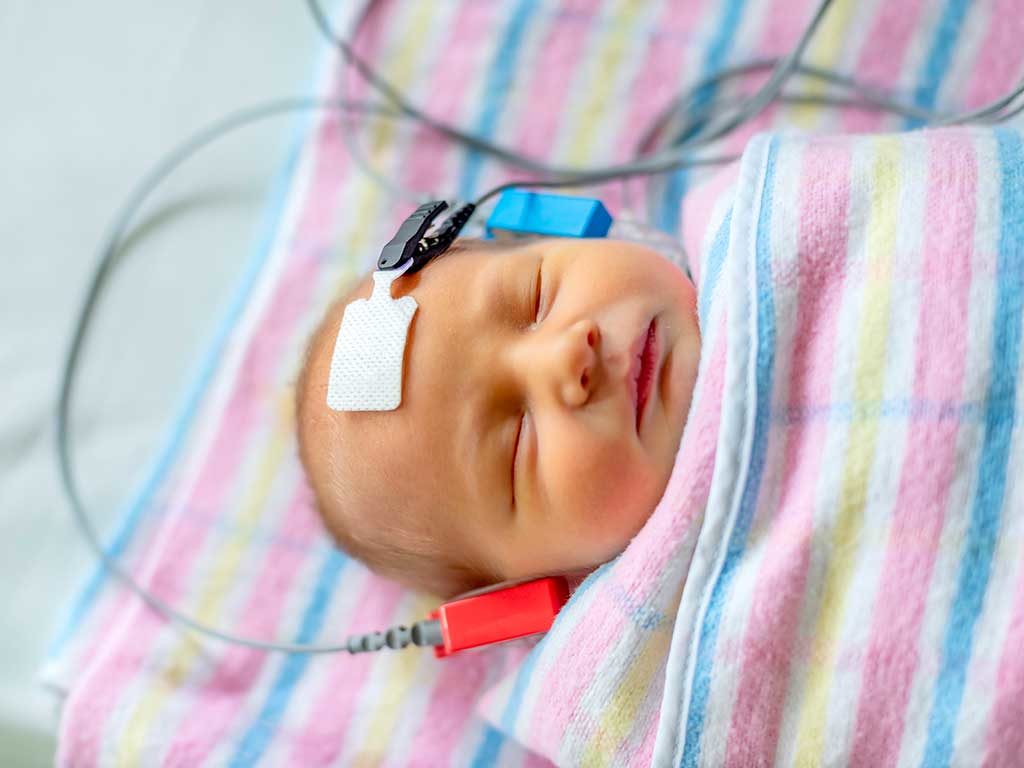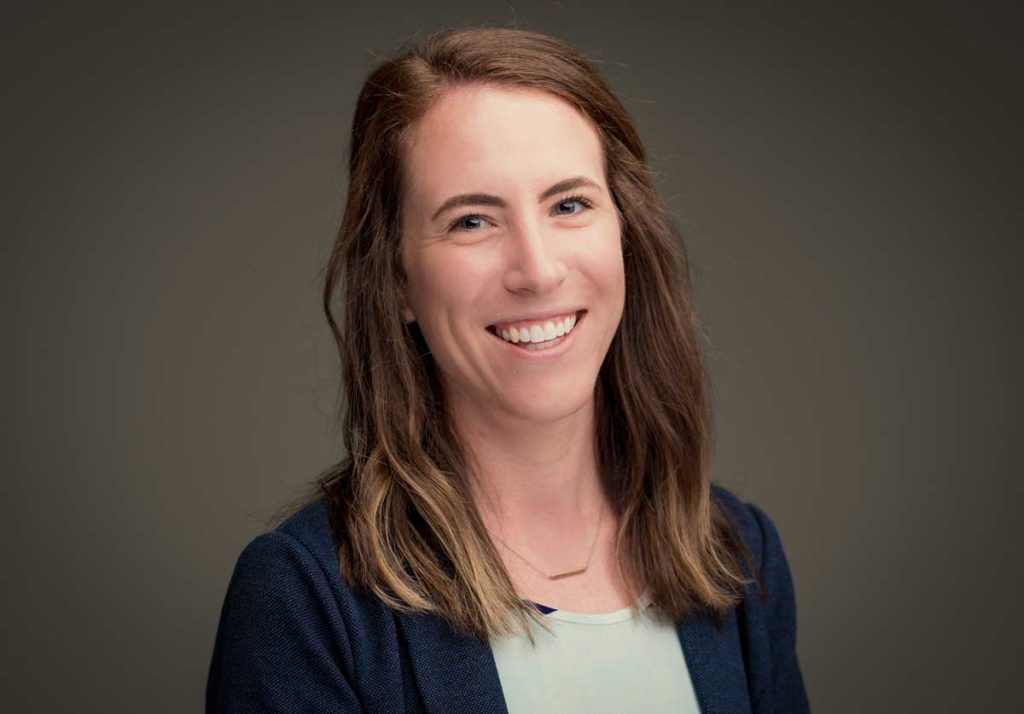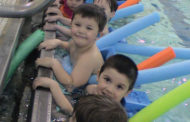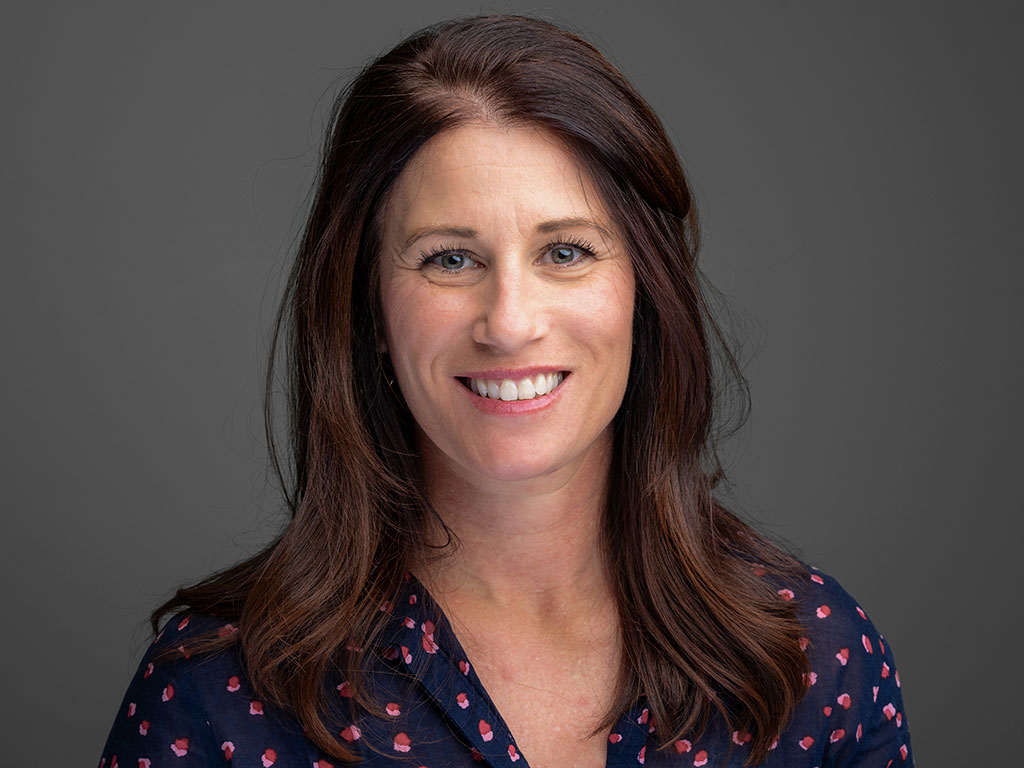By Hilary Maxim

By Midkhat Izmaylov / Adobe Stock
Audiologists are the ear doctors of the medical world. Through various tests, they can diagnose and treat hearing loss as well as identify other issues that might arise along the auditory pathway. With a special set of skills and techniques these assessments can even be performed on pediatric patients. However, pediatric audiology is a specialty that not every practice is equipped for, so it’s important to ask your audiologist, or the doctor referring you, if the provider is comfortable and capable of evaluating a child’s hearing.
Hearing test for your child?
Every baby born in the United States receives a newborn hearing screening. So why might a child need an audiological evaluation? Here are a few reasons:
- If a baby has any of several risk factors associated with hearing loss, they will receive a diagnostic evaluation with a pediatric audiologist. This testing looks more closely at the specific hearing level of each baby, and results can typically diagnose the degree and type of hearing loss if one is present.
- If a child experiences multiple ear infections and antibiotics do not correct the issue, that child should be referred for an audiological evaluation and likely a visit to the Ear, Nose, and Throat (otolaryngologist) doctor as well.
- If a child is behind in his/her speech and language development, a hearing test may be performed to rule out or identify any hearing issues contributing to this delay.
- Children ages 7 and older who have normal hearing and struggle to follow directions or are behind their peers in school may receive an evaluation to determine if they have an Auditory Processing Disorder.
Hearing Test – What to expect
One of the questions parents ask most about audiological testing is, “How are you going to test my 2-month, 18-month, 2 ½, or 4-year old’s hearing?” This is a great question and one with many answers.
The age of a child as well as his or her ability to participate in a task determines the type of audiological evaluation most appropriate for them. Here is a list of some of the ways a child’s hearing may be evaluated:
- A newborn’s hearing is assessed through what is called an Auditory Brainstem Response (ABR) Evaluation. This testing is done while the baby is asleep. The audiologist places noninvasive electrodes on the baby’s forehead and ears and plays a series of sounds through ear buds. The electrodes measure the brain waves in response to the sounds played. If abnormal hearing is identified on the initial test, a repeat evaluation is usually recommended to confirm the results.
- After a child reaches about 5-6 months of age they typically do not sleep long enough to complete an ABR evaluation, therefore behavioral testing is attempted. There are several ways to evaluate a child’s hearing level through their behaviors and reactions to certain sounds. Audiologists use special techniques known as behavioral observational audiometry (BOA) and visual reinforcement audiometry (VRA) to assess children from about 6 months to 3 years of age. With BOA the audiologist looks for certain reactions or movements as various sounds are presented. With VRA the child is “trained” to look at a special toy/screen that lights up when a sound is played. This technique may also be used on older children and adult populations with special needs.
- By the time a child reaches 3-4 years of age they are ready to participate in an audiological game with an evaluation known as conditioned play audiometry (CPA). During this evaluation the child is trained to respond by participating in a game whenever he/she hears the sound.

Want to know more…
Parents often have a lot of questions about their child’s hearing. If you’d like to learn more about pediatric audiological services, we are here to help. Give us a call anytime at 207-535-1150.
Hilary A. Maxim, Au.D., CCC-A, FAAA, is a Doctor of Audiology at Northern Light Mercy Ear, Nose, and Throat Care.






3 Comments
Thomas Peterson
I liked that you mentioned that a newborns hearing test is done through an auditory brainstem response evaluation and it’s done while the baby is asleep. I was curious about how my daughter’s hearing test worked when she got her hearing tested after she was born. It’s interesting that it measures brainwaves in response to the sounds being played.
Vivian Black
My niece has had a lot of ear infections even as an infant. Now that she is becoming a toddler, we suspect that she can’t hear as well as she should. She does not respond to voice without raising the volume of our speech. Thank you for pointing out that many ear infections can actually cause some hearing issues. When you mentioned that delayed speech can be an indication as well, we became concerned since this is also something that we have noticed in her. We will be sure to contact a pediatric hearing specialist by next week.
Anthony Zeli
We are glad this article was informative and of help to you and your family. Thank you for reading.